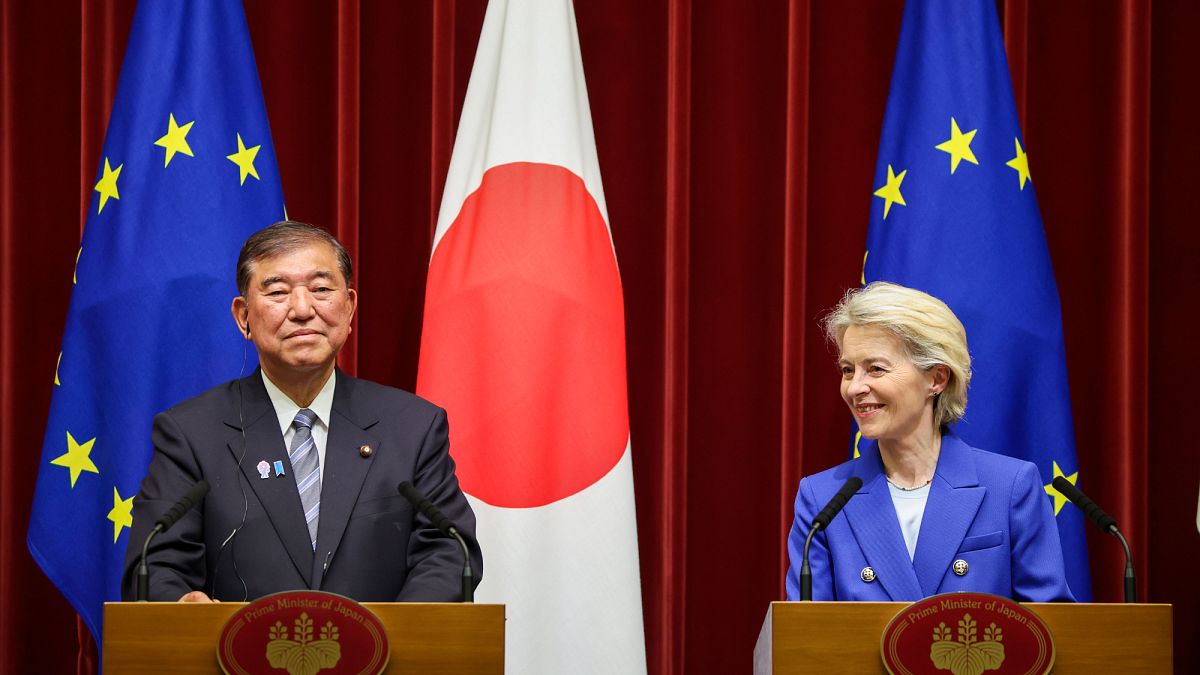

As the world navigates through complex geopolitical landscapes, recent developments highlight both enduring partnerships and emerging alliances across different regions. From Europe to Asia and the Middle East, significant agreements and diplomatic calls are shaping the global narrative in ways that seek to foster stability, progress, and mutual understanding.
In a move that underscores the strengthening of intercontinental ties, the European Union and Japan are poised to enhance their economic relationship amidst a backdrop of global trade tensions involving major powers such as China and the United States. This initiative is seen as a strategic alignment, aiming to create a more robust framework for economic cooperation between these influential entities. By focusing on shared interests, the EU and Japan are reinforcing their commitment to maintaining stable economic exchanges and pursuing sustainable development goals, offering a beacon of cooperation in an uncertain global economic context.
Turning to the defense landscape, Turkey and the United Kingdom have recently forged a noteworthy deal centered on Eurofighter jets. As Turkey seeks to modernize its air force, this agreement marks a significant step forward. Additionally, Turkey’s ambitions to rejoin the US-led F-35 fighter jet program—an initiative it was previously excluded from—signal its broader intentions to reposition itself within global defense circles. These efforts reflect Turkey’s dedication to enhancing its military capabilities while navigating complex diplomatic channels with major defense partners.
In the realm of diplomatic advocacy, the Mayor of London, Sadiq Khan, has expressed a resonant plea urging the UK government to immediately recognize the state of Palestine. This call comes amid an escalating international outcry over humanitarian concerns in Gaza, with reports highlighting dire conditions of starvation and civilian casualties. Senior governmental figures in the UK have reportedly conveyed similar appeals to the prime minister, advocating for recognition as a leverage point to address the situation. These developments are indicative of a broader push for proactive diplomatic engagement in pursuit of longstanding peace and stability in the Middle East.
Meanwhile, a significant diplomatic event unfolded with Indian Prime Minister Narendra Modi’s state visit to the United Kingdom. This visit marks the signing of a landmark free trade agreement between the two nations, representing a major milestone in their bilateral relations post-Brexit. For the UK, the agreement is heralded as a crucial economic victory, promising boosts to key industries such as car manufacturing and whisky production. Simultaneously, India stands to benefit from visa concessions, marking this alliance as its first major free trade agreement outside of Asia. Both countries view this pact as a pivotal step in fostering long-term economic partnerships, highlighting a shared vision for enhanced trade collaboration amidst global uncertainties.
These developments collectively illustrate the intricate web of international relations, where diplomacy, trade, and strategic partnerships are pivotal to fostering a balanced and positive global environment. As nations navigate these complex dynamics, the emphasis on constructive engagement and collaboration remains a guiding principle, offering a path toward a more interconnected and harmonious world. Each diplomatic move and trade agreement is a step toward sustaining growth and shared prosperity across regions, embodying hope and resilience in the face of global challenges.
Source: {link}
